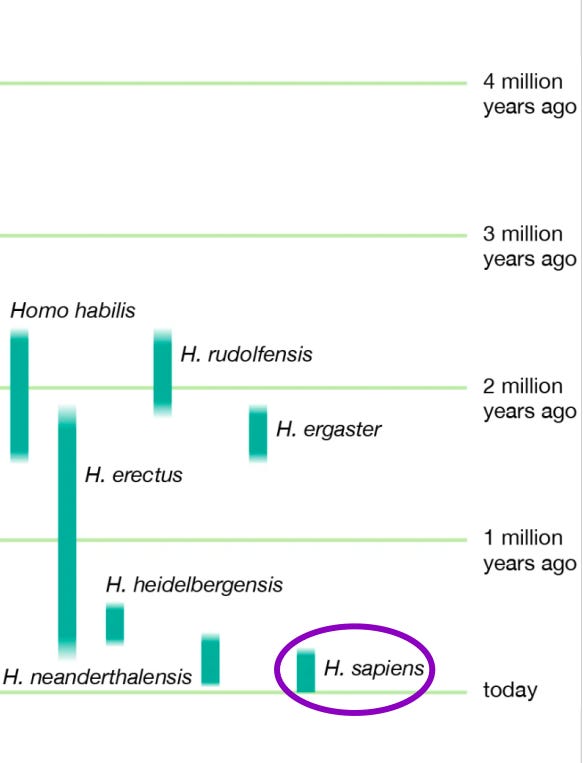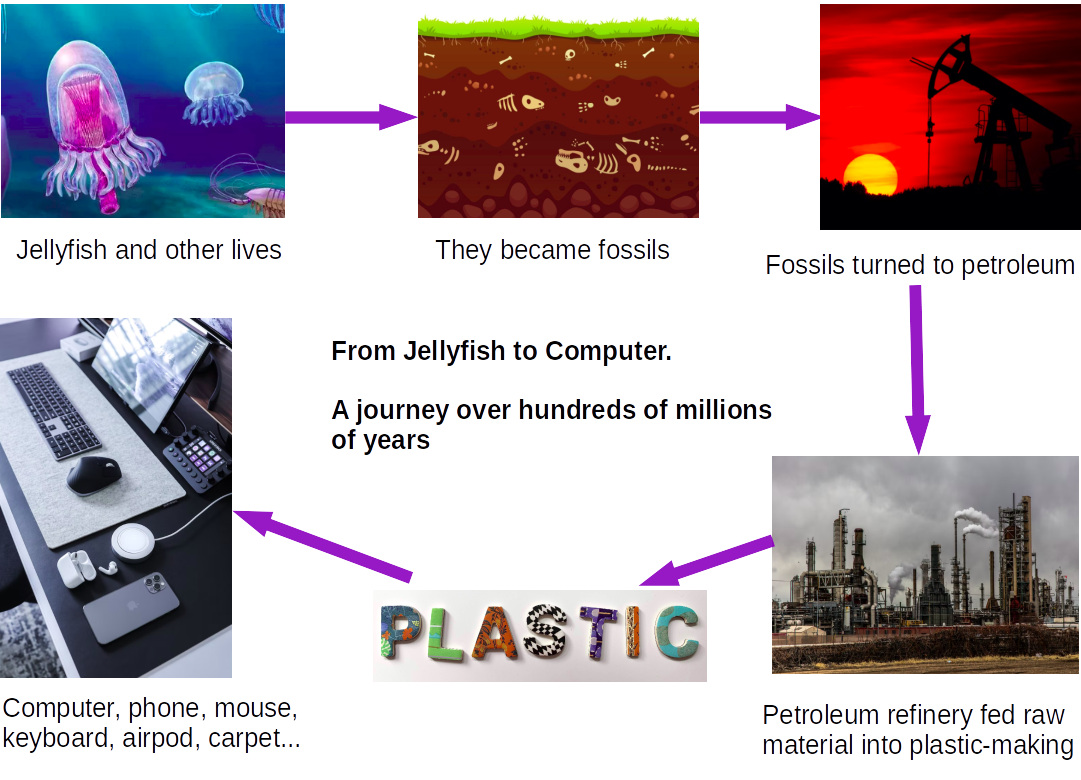Love Not Too Well the Dominance of Our Kindred | Foundations, Part 4
Like Alexander Hamilton, "don't forget from whence you came"
This is part 4 of the Foundations series of Earthly Fortunes. Here I share a broader view of how I make sense of the world, as foundations of specific topics and stories that we will dive into soon.
See Part 5 for my Materialist confessions, Part 3 for the Vegas-Eden spectrum, Part 2 for negative knowledge, and Part 1 for three types of knowledge.
Evolution didn't make sense to me. If humans truly evolved from free-ranging jungle monkeys to computer-staring city bipeds, how come we are not better than other animals? We, homo sapiens, or "the wise ones" as the name goes, can't run faster than weasels. Or see more colors than butterflies. Or hear more sounds than bats. Or smell more aromas than dogs.
But monkeys, weasels, butterflies, dogs, and bats didn't invent computers or build cities. So I decided it was an even draw. Homo sapiens must have done something right.
After all, all our cousins in the genus homo have returned to the earth — as fossils. Only we “the wise ones” survived. Following Genesis 1:28, we have filled the earth with almost eight billion of us, subdued deserts by raising oases, ruled over the fish, the birds, and creatures that move on the ground. In less than half a million years of existence, we’ve refashioned the world what photosynthetic bacteria took 400 million years to achieve in the Great Oxidation Event (GOE).

During GOE, photosynthetic bacteria started pumping loads of oxygen into the biosphere. Billions of years later, from the animal kingdom emerged homo sapiens that inhale oxygen, and exhale carbon dioxide. There but for the grace of photosynthetic bacteria go all of us. We did nothing to earn the basis of our existence, but we exercised power over the earth — unlike our innocent forebears in Eden from the creation myth — creating a world to our liking and desires.
How are we creating this world? The earth gives us all the materials.
This laptop I stare at is a machine made from plastics, a byproduct of petroleum, formed by fossils over eon. Chances are that atoms from the body of your favorite Cambrian jellyfish, ended up in your laptop.
The cities we build use miles of steel forged from iron ores, which were oxidized in the earth’s crust by oxygen-producing bacteria since GOE.
Plastics and steel may look inorganic and lifeless, but behind them are ages of life and their activities.

The earth gives. It also takes. If you ever touched rusty railings on a bridge, or like me, left a laptop out in the open for too long that the shell got brittle, you’ve seen the earth take back what it gives us. Slowly but surely, every life and species that have ever lived, become the foundations of the earth for future species to use and enjoy. Earth just plays this give-and-take game on its own.
Now we are dominating the earth. As did jellyfish 500 million years ago, whose atoms are still in our computers’ shells. As did photosynthetic bacteria 2.6 billion years ago, that are still at work behind the steel in our buildings and cutlery. Eons later, the world we create may still be here. We may still be here. But it’s also possible that the earth will have taken back what it has given us. No matter how wise we are, we are still a species, like the monkeys, weasels, butterflies, dogs, and bats are species. Our dominance will become foundations for the future earth and its species, in one way or another.
Love not too well the dominance of our kindred nor the world of our creation; remember that all fortunes of our species come from the earth, and will one day, return to it.
Thank you for reading Earthly Fortunes. If you like this, please share with your friends. Subscribe for free to join me on the game of give-and-take with the earth.
Other than rusty railings and brittle laptop shells, where else do you see the earth take back what it gives us? Reply to the email, comment, or DM me on Twitter!
Many thanks to Karena de Souza, Louis Pereira, Michelle Varghese, Eric Ho, David Matheson, Kirsten Corbett, Elizabeth Edwars, Bryan Liu, and Latham Turner for their feedback on earlier drafts!



